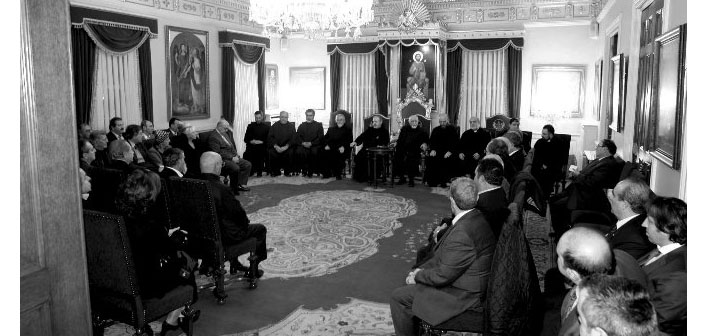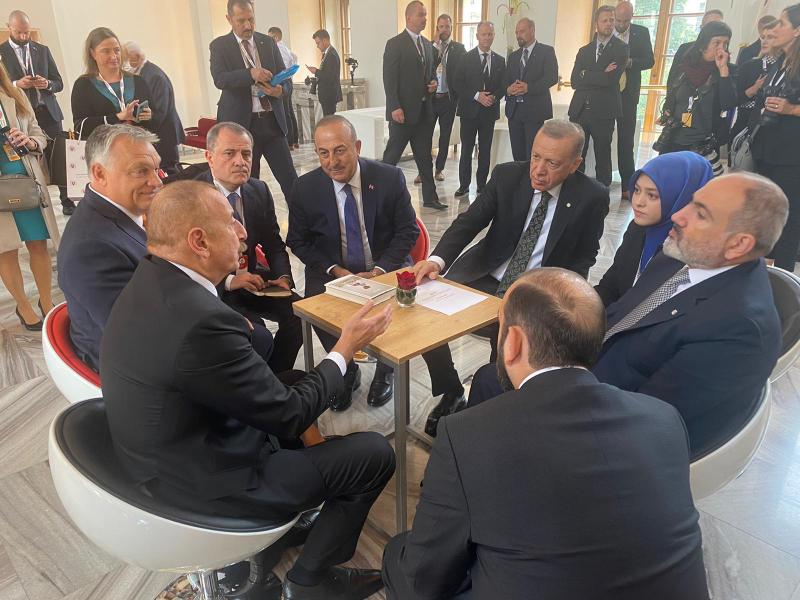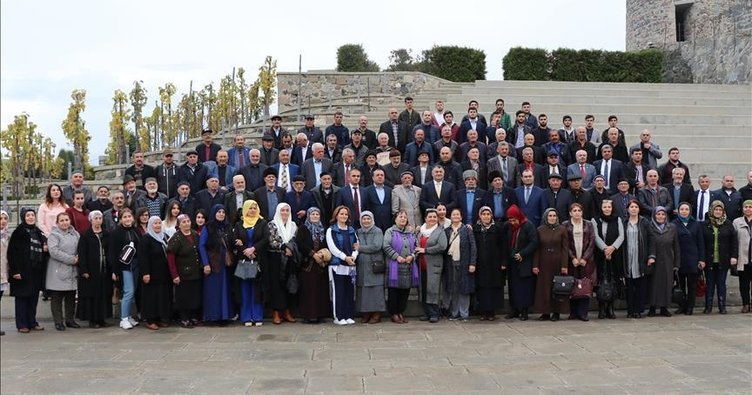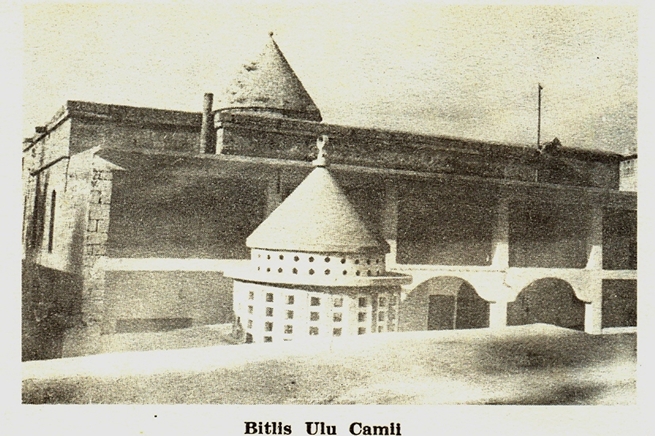
The South Caucasus is Türkiye’s gateway to the East, connecting the country -through Central Asia- to the Asia-Pacific region, the emerging economic center of the world. In terms of identity and culture, the South Caucasus’ importance for Türkiye cannot be overstated: this is where the brotherly and allied country of Azerbaijan is situated and through which Türkiye can reach the wider Turkic world in Central Asia that is witnessing the steady development of the Organization of Turkic States (OTS). In the South Caucasus, alongside Azerbaijan, Georgia has been a reliable partner for Türkiye in trade and in energy and transportation routes, forming the Middle Corridor connecting the Asia-Pacific to the lucrative markets of the European Union (EU). For Türkiye, Armenia remains the missing piece of this regional cooperation network. A fair and sustainable peace agreement between Azerbaijan and Armenia after the prolonged hostilities of post-Cold War will hopefully bring Armenia into this cooperation network as well.
For this beneficial cooperation network to operate successfully, Türkiye engages in a foreign policy that seeks to maintain peace and stability in the South Caucasus. Rivalries by major powers for influence in this region are inherently threatening for such a network. It is for this reason that one of the priorities of Turkish foreign policy is to avoid antagonizing Russia (also Iran) in the South Caucasus. Russia deems the region as being vital for its security interests, because once this region is passed, a hostile actor will have a clear striking chance into the “soft belly” of Russia’s heartland. The region also serves as a vital, alternative connection for Russia to the outside world free from direct Western meddling. Antagonizing Russia, therefore, will yield no other results than retaliatory Russian attempts to derail Turkish efforts at boosting regional cooperation. As a result, Türkiye has opted to operate in the South Caucasus and beyond within a framework where neither side attempts to push the other one out of the region.
Türkiye’s South Caucasus foreign policy has to take into consideration the fact that it is a North Atlantic Treaty Organization (NATO) member and a European Union (EU) candidate that at the same time wishes to independently expand its relations with the countries of the East to increase its room for maneuvering in global politics. Türkiye’s balancing acts regarding its commitments to the Western institutions and aspirations for more comprehensive relations with Eastern countries has frequently drawn criticism from Western countries. When it comes to the South Caucasus and beyond, Western countries demand a specific approach from Türkiye that can be summarized by the below quotes:[1]
“Turkey understands that its expected role is to serve as a ‘mediator’, brokering EU and NATO activities in the region in a form that is least objectionable or threatening to Russian interests. […]”
“Guided by a strategic imperative to limit Russian (and Iranian) regional influence, Ankara’s Euro-Atlantic partners expected that, given Turkey’s strategic location, Turkey would take the lead in advancing and extending Western interests in the region, especially in ‘providing options whose main effect would be to weaken the Caspian states’ economic and transportation dependence on Russia’.”
“[Turkish President Recep Tayyip] Erdoğan’s efforts to create bilateral mechanisms with Russia for regulating conflict in the South Caucasus were criticised by the United States and other NATO allies for not securing a ‘transatlantic consensus’.”
Aggregating the news pieces reflecting Western officials’ statements concerning the South Caucasus and considering the above quotes, two points come to mind:
1) The West, specifically the United States (US) and the EU, view the South Caucasus as a battleground for influence being waged against Russia and Iran. The US and the EU wish to bring the three countries of the South Caucasus into Western orbit. It is for this reason that both the US and the EU are aggressively courting Armenia, trying to capitalize on Armenia’s frustration with Russia due to the events that transpired during and after the Second Karabakh War. This seems to be working, as Russia is preoccupied due to its ongoing invasion of Ukraine and therefore currently lacks the means to pressure Armenia to remain in the Russian sphere of influence. In Georgia, the US and the EU are threatening the government with sanctions because they are dissatisfied with the results of the parliamentary elections held in October 2024, alleging that there was significant electoral fraud. Georgia’s relations with Western countries were already strained in recent times due to the Georgian government’s decision to pursue a foreign policy balancing Russia and the West. It can easily be deduced that the ultimate aim of the US and the EU is to marginalize and then push out Russia (also Iran) from the region.
2) It seems Western countries expect Türkiye not to have a South Caucasus foreign policy independent from Western interests. In other words, any move by Türkiye in the region should primarily further the position of the West in the region. However, as stated earlier, this contradicts the interests of both Russia and Iran, who consider Western presence in the region as a direct threat to their security and economies. Furthermore, policies meant to secure Türkiye’s place in the shifting geopolitical landscape of Eurasia are somehow considered by the US and EU to be inherently harmful. This attitude damages Türkiye’s trust towards both the US and the EU, because it gives the impression that that the US and the EU consider Türkiye as a rival rather than a NATO ally and an EU candidate. This is tied to the quote about “transatlantic consensus”. When was such a consensus reached? Throughout the years, Türkiye has clearly demonstrated to the international community its approach to the South Caucasus. Since Türkiye is an institutional member of the Transatlantic community through its membership or candidacy in various Western organizations, why was Türkiye not consulted when reaching this consensus? And because of the meaning of the word “consensus”, can we even talk about a “transatlantic consensus” about the South Caucasus that lacks Türkiye’s input?
This foreign policy friction between Türkiye on the one hand, and the US and the EU on the other is not confined to the South Caucasus. A similar situation emerged, for example, after Russia launched its full-scale invasion of Ukraine in February 2022. Türkiye “joined the West in the condemnation of Russia for the invasion and pursued defense cooperation with Ukraine, but refused to join Western sanctions against Russia and maintained regular economic ties with the said the country.”[2] Türkiye’s balancing act in this conflict faced considerable criticism from the US and the EU, but neither of the two provided a sensible approach to the conflict to justify such criticism:
“[Western actors] view the Ukraine-Russia war as an unmissable chance to humiliate and cripple Russia in the international arena. Achieving this objective requires pursuing a brutal war of attrition that could last for years to come, and more than a million people in Ukraine and Russia have already died since February 2022. Knowing political history allows us to assume that, in the hopes of definitively defeating Russia, these pro-war Western circles do not in any way care that Ukrainians are suffering, so long as Russians suffer as well.”[3]
The conflict has resulted in massive profits for American defense companies whose weapon systems and ammunitions are being delivered to Ukraine, Ukraine’s civilian life and infrastructure being devastated by the war against a much more powerful Russia intentionally (or carelessly) antagonized by the West, and an EU that has become dependent on the US for energy resources and vulnerable to global economic trends. Amidst all this, Türkiye “has established itself as one of the few reliable actors that can serve as a point of contact between the West, Ukraine, and Russia at the same time”[4]. Considering this, Türkiye has been vindicated in pursuing a balanced foreign policy in the Russia-Ukraine war that safeguards Türkiye’s interest and seeks to “contain, de-escalate, and end” the conflict “sooner rather than later”.
It is time for both the US and the EU to realize that Türkiye’s foreign policy approach in the South Caucasus and beyond is completely justified when considering the developments of the last few years and changing dynamics of the international order.[5] Yes, Türkiye is an institutionalized member of the Western world/Transatlantic community, but it cannot afford to ignore the opportunities and challenges emerging in its neighborhood. This is especially true considering that both the US and the EU prioritize competitional over cooperative foreign policy and are behaving in a dismissive way towards Türkiye’s interests and sensitivities.
[1] Nikolas K. Gvosdev, “Russia’s Assessment of Turkey’s Policy in the South Caucasus Implications for the EU”, The Centre for Applied Turkey Studies (CATS)-Stiftung Wissenschaft und Politik (SWP) in Berlin, CATS Network Paper, No. 11, December 18, 2024, https://www.cats-network.eu/publication/russias-assessment-of-turkeys-policy-in-the-south-caucasus
[2] Mehmet Oğuzhan Tulun, “Türkiye’s Mediation in the Ukraine-Russia War”, Center for Eurasian Studies (AVİM), Analysis No: 2024/16, October 23, 2024, https://avim.org.tr/en/Analiz/TURKIYE-S-MEDIATION-THE-UKRAINE-RUSSIA-WAR
[3] Tulun, “Türkiye’s Mediation in the Ukraine-Russia War”.
[4] Tulun, “Türkiye’s Mediation in the Ukraine-Russia War”.
[5] Teoman Ertuğrul Tulun, “CONSTRUCTIVE EURASIANISM: REVISITING DEFINITIONS”, Center for Eurasian Studies (AVİM), Commentary No: 2025/3, January 8, 2024, https://avim.org.tr/en/Yorum/CONSTRUCTIVE-EURASIANISM-REVISITING-DEFINITIONS
© 2009-2025 Center for Eurasian Studies (AVİM) All Rights Reserved
No comments yet.
-
 A HYPOCRITICAL CALL FOR INTER-RELIGIOUS DIALOGUE
A HYPOCRITICAL CALL FOR INTER-RELIGIOUS DIALOGUE
Mehmet Oğuzhan TULUN 17.09.2015 -
 THE DISPUTE OVER THE ELECTION OF THE ARMENIAN PATRIARCH OF ISTANBUL HAS YET AGAIN INTENSIFIED
THE DISPUTE OVER THE ELECTION OF THE ARMENIAN PATRIARCH OF ISTANBUL HAS YET AGAIN INTENSIFIED
Mehmet Oğuzhan TULUN 15.11.2016 -
 AZERBAIJAN-ARMENIA PEACE TREATY PROCESS AND ATTEMPTS TO UNDERMINE TÜRKİYE-AZERBAIJAN RELATIONS - II
AZERBAIJAN-ARMENIA PEACE TREATY PROCESS AND ATTEMPTS TO UNDERMINE TÜRKİYE-AZERBAIJAN RELATIONS - II
Mehmet Oğuzhan TULUN 21.11.2025 -
 RELIGION AND DOUBLE STANDARDS
RELIGION AND DOUBLE STANDARDS
Mehmet Oğuzhan TULUN 20.04.2016 -
 POPE FRANCIS’ DOUBLE STANDARD – II
POPE FRANCIS’ DOUBLE STANDARD – II
Mehmet Oğuzhan TULUN 28.06.2015
-
 THE ARMENIAN APOSTOLIC CHURCH AND THE ENCOURAGEMENT OF TERRORISM
THE ARMENIAN APOSTOLIC CHURCH AND THE ENCOURAGEMENT OF TERRORISM
AVİM 22.05.2024 -
AVIM HOSTED MEETING ON G20
AVİM 14.11.2013 -
 GEORGIA-TURKEY RELATIONS IN THE CONTEXT OF THE MESKHETIAN TURKS ISSUE
GEORGIA-TURKEY RELATIONS IN THE CONTEXT OF THE MESKHETIAN TURKS ISSUE
Şevval Beste GÖKÇELİK 18.12.2020 -
 GREECE AND THE PONTIC QUESTION: MANIPULATION OF CENSUS DATA AND GENOCIDE ALLEGATIONS
GREECE AND THE PONTIC QUESTION: MANIPULATION OF CENSUS DATA AND GENOCIDE ALLEGATIONS
Mehmet Oğuzhan TULUN 21.05.2025 -
 BOOK INTRODUCTION: İSTİKLALE AÇILAN İLK KAPI: BİTLİS (İŞGALİ VE KURTULUŞU) – MEHMET TÖREHAN SERDAR
BOOK INTRODUCTION: İSTİKLALE AÇILAN İLK KAPI: BİTLİS (İŞGALİ VE KURTULUŞU) – MEHMET TÖREHAN SERDAR
Hazel ÇAĞAN ELBİR 11.08.2017
-
25.01.2016
THE ARMENIAN QUESTION - BASIC KNOWLEDGE AND DOCUMENTATION -
12.06.2024
THE TRUTH WILL OUT -
27.03.2023
RADİKAL ERMENİ UNSURLARCA GERÇEKLEŞTİRİLEN MEZALİMLER VE VANDALİZM -
17.03.2023
PATRIOTISM PERVERTED -
23.02.2023
MEN ARE LIKE THAT -
03.02.2023
BAKÜ-TİFLİS-CEYHAN BORU HATTININ YAŞANAN TARİHİ -
16.12.2022
INTERNATIONAL SCHOLARS ON THE EVENTS OF 1915 -
07.12.2022
FAKE PHOTOS AND THE ARMENIAN PROPAGANDA -
07.12.2022
ERMENİ PROPAGANDASI VE SAHTE RESİMLER -
01.01.2022
A Letter From Japan - Strategically Mum: The Silence of the Armenians -
01.01.2022
Japonya'dan Bir Mektup - Stratejik Suskunluk: Ermenilerin Sessizliği -
03.06.2020
Anastas Mikoyan: Confessions of an Armenian Bolshevik -
08.04.2020
Sovyet Sonrası Ukrayna’da Devlet, Toplum ve Siyaset - Değişen Dinamikler, Dönüşen Kimlikler -
12.06.2018
Ermeni Sorunuyla İlgili İngiliz Belgeleri (1912-1923) - British Documents on Armenian Question (1912-1923) -
02.12.2016
Turkish-Russian Academics: A Historical Study on the Caucasus -
01.07.2016
Gürcistan'daki Müslüman Topluluklar: Azınlık Hakları, Kimlik, Siyaset -
10.03.2016
Armenian Diaspora: Diaspora, State and the Imagination of the Republic of Armenia -
24.01.2016
ERMENİ SORUNU - TEMEL BİLGİ VE BELGELER (2. BASKI)
-
AVİM Conference Hall 24.01.2023
CONFERENCE TITLED “HUNGARY’S PERSPECTIVES ON THE TURKIC WORLD"









